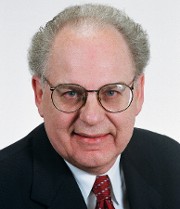 I just read the findings of a new study on GPO’s competiveness, compensation and structure by economists Robert E. Litan and Hal J. Singer that states that healthcare organizations can save 7% to 10% on their medical device purchases through e-auctions vs. GPO contracts.
I just read the findings of a new study on GPO’s competiveness, compensation and structure by economists Robert E. Litan and Hal J. Singer that states that healthcare organizations can save 7% to 10% on their medical device purchases through e-auctions vs. GPO contracts.
This same study also claims that $37.5 billion could be saved if GPOs would eliminate their existing administrative fee compensation structure and then instead reformulate a new compensation structure with their members.
Litan and Singer’s overall rationale of their study was that, “So long as GPOs are compensated this way (i.e. administrative fees), they have an inherent conflict that limits their ability to negotiate the best prices for their member hospitals and those hospitals (and their payors, including the federal government) will likely continue to overpay for medical devices.”
Are these statements justifiable? First of all, I believe that Litan and Singer aren’t comparing apples and oranges when they talk about medical devices and GPO compensations in one sentence. Yes, I do believe that there is credibility in the notion that e-auction for medical device purchases can sometimes save healthcare organizations more than GPO contracts can. However, that doesn’t mean that GPO medical device contracts aren’t competitive. It just means that e-auctions with their time-lapse bidding process can often (Litan and Singer say 10% of the time) save a hospital, system or IDN 7% to 10% on medical device purchases.
Conversely, GPO fee structures have nothing to do with e-auctions. This is the business model that GPOs have adopted that has proven for decades to work for GPOs and their members. Does it make sense for GPOs and their members to revisit this business model from time to time? Positively! In the new healthcare economy that we are now moving toward, GPOs should always be looking for new and better ways to bring more value to our members.
In the final analysis, I believe that the Litan and Singer study is seriously flawed since they only looked at one small aspect of group purchasing activities (medical device purchasing) and then tried to connect the dots to build a case that GPOs aren’t competitive because of their administrative fee structure.
It is surprising to me that Litan and Singer completely ignored more comprehensive GPO studies performed by Dr. Eugene S. Schneller, Professor at Arizona State University, showing that GPOs, year in and year out, save billions for their members with a myriad of comprehensive value-based services that have help healthcare organizations nation-wide to reduce cost and improve their quality.
As I see it, this is what happens when anyone selectively studies fragmented pieces of any economic system, and then tries to extrapolate their findings and conclusions to the economic system as a whole: It distorts, misrepresents and brings into questions the overall premise of any such study.
Robert T. Yokl
Chief Value Strategist
Strategic Value Analysis® in Healthcare

A few corrections and observations to Mr. Yokl’s statements: The study found e-auctions produced savings 77% of the time, not 10% as stated.
Up to 18% savings were available for 2010, the most recent data available.
The study is the only one in history to use real prices paid by hospitals, as compared to contract pricing. In other words, it is empirical, and the results inarguable. The reason these independent economists ignored Schneller’s paper is because his is not empirical. It is based on surveys of opinions. Not one transaction or real world price is included in his prior studies, while the Litan-Singer study is based only upon real transaction price data.
Healthcare professionals cannot deny that we have challenges in the healthcare supply chain. If we did not, we would not be debating health reform and prices would not still be rising. To ignore the problem is to neglect our future, when we only have so much time fix what is wrong as the problem worsens exponentially.
To ignore or detract from studies which highlight cost reduction successes, simply because these successes are different than the status quo, only delays the inevitable solutions we must embrace.
Calling all healthcare supply chain professionals- With all due respect to the status quo, the time to innovate is now.
Bob Yancy, CEO
MEMdata